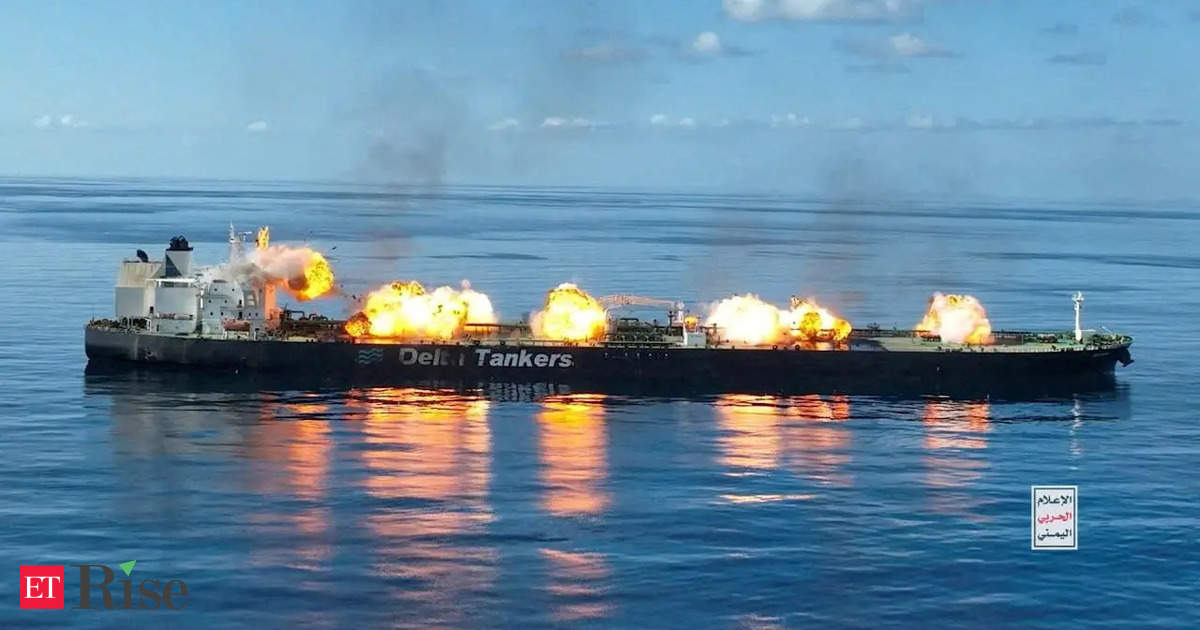Yet the biggest surprise is also the most ominous for the global order. A radical quasi-state actor that most Americans have never heard of, the Houthis from Yemen, have posed the most serious challenge to freedom of the seas in decades, and have arguably defeated a weary superpower in the process.
The Houthis began their campaign against shipping through Bab el-Mandeb, which connects the Red Sea and the Gulf of Aden, by the end of 2023. They are nominally attacking out of sympathy for the Palestinian people, but also to gain stature within the so-called Axis of Resistance, a Middle Eastern proxy group cultivated by Iran.
In January, Washington responded with Operation Prosperity Guardian, which includes defensive measures (largely by American destroyers) to protect ships from drones and missiles, as well as air strikes against Houthi attack capabilities in Yemen. The results have been mediocre at best.
The Houthis have cut Suez Canal traffic by more than half, depriving Egypt of toll revenues. They have bankrupted the Israeli port of Eilat on the Gulf of Aqaba. Nearly a year on, the group appears more emboldened than deterred: it recently paralyzed an oil tanker, threatening a spill with catastrophic environmental consequences. A waterway that carried 10% to 15% of the world’s oil trade It has become a killing zone.
This saga combines old and new dynamics. Bab el-Mandeb, which in Arabic means “gate of tears,” has long been a flashpoint for fighting. This chokepoint is surrounded by instability in the southern Arabian Peninsula and the Horn of Africa. That situation has invited conflict and foreign intervention for decades, but the Houthi campaign also exposes new global problems. One is the declining cost of power projection. The Houthis are not a traditional military giant; they do not even fully control Yemen. Yet they have employed drones and missiles to control access to vital seas. The Houthis have had help in doing so: Iran has provided weapons and the know-how to make them. But the Red Sea crisis continues to show how seemingly minor actors can use relatively cheap capabilities to extend their destructive reach.
The second feature is the strategic synergy between America’s enemies. The Houthis became more fearsome thanks to the mentorship of Iran and Hezbollah. Since October 2023, they have allowed most Chinese ships to pass unharmed. The Houthis have also received encouragement – and, it seems, direct support – from a Russia eager to exact revenge on Washington.
Beijing and Moscow reap geopolitical rewards when America is burdened by conflicts in the Middle East, so both are willing to allow this crisis to escalate or even worsen.
Another factor that further aggravates the situation is the US aversion to escalation, which is rooted in military overstretch. A global superpower has been reduced to an inconclusive standoff with a band of Yemeni extremists. It is a cop-out to claim that this very extremism makes the Houthis “indestructible.”
The central issue is that Washington has been hesitant to take more forceful action — such as sinking an Iranian intelligence ship supporting the Houthis or attacking the infrastructure that supports their government inside Yemen — for fear of inflaming a tense regional situation.
That approach has limited the risk of escalation in the short term but has allowed Tehran and the Houthis to keep the standoff at their preferred temperature. It also reflects the underlying fatigue of a U.S. military that lacks enough cruise missiles, laser-guided bombs, attack aircraft and warships to pursue the campaign more aggressively without compromising its readiness for conflict elsewhere.
Hence the fourth characteristic: the breakdown of the norms that the international community took for granted. The global commercial damage caused by the Houthis has actually been limited, thanks to the adaptability of the shipping networks that underpin the world economy. But the precedent is terrible: the Houthis have disrupted the freedom of the seas in a crucial area and have paid a very modest price.
Russia’s war in Ukraine simultaneously highlights another fundamental principle: the norm against conquest by force. Revisionist actors are challenging the global rules that underpin the relative prosperity, security and stability of our post-1945 world.
A drastic change in the United States’ course is probably not imminent. President Joe Biden Iran’s president is still trying to secure that elusive ceasefire between Israel and Hamas, which would at least deprive the Houthis and other Iranian allies of their pretext for violence, though no one is really sure whether it would end attacks on Red Sea ships. He hopes to get through the presidential election without further trouble with Tehran.
But this coping strategy may not last long. Whoever becomes president in 2025 will have to face the fact that the United States is losing the battle for the Red Sea, with all the pernicious global implications that may entail.
Brands is also a senior fellow at the American Enterprise Institute, co-author of “Danger Zone: The Coming Conflict with China,” and a member of the State Department’s Foreign Affairs Policy Council. He is a senior advisor at Macro Advisory Partners.
Disclaimer:
The information contained in this post is for general information purposes only. We make no representations or warranties of any kind, express or implied, about the completeness, accuracy, reliability, suitability or availability with respect to the website or the information, products, services, or related graphics contained on the post for any purpose.
We respect the intellectual property rights of content creators. If you are the owner of any material featured on our website and have concerns about its use, please contact us. We are committed to addressing any copyright issues promptly and will remove any material within 2 days of receiving a request from the rightful owner.

